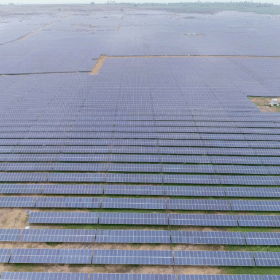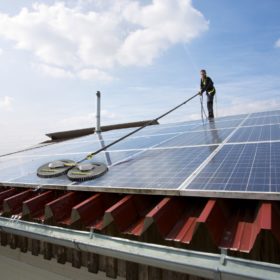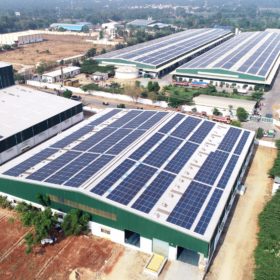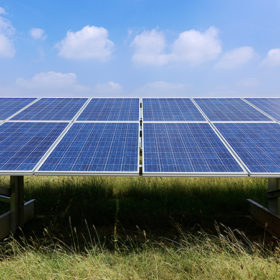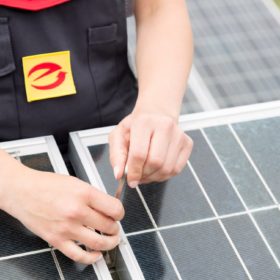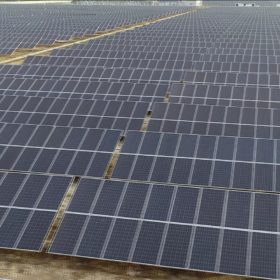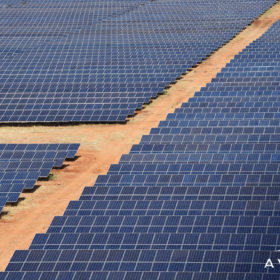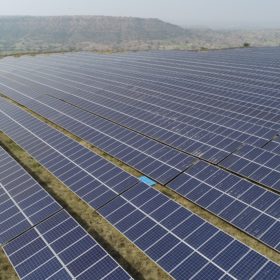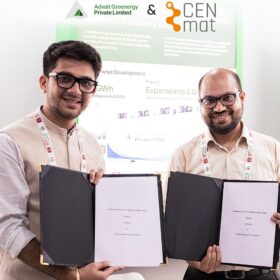Amplus Solar to set up 200 MWp wind-solar hybrid project in Tamil Nadu
The plant marks Amplus Solar’s first wind and solar hybrid project. It will supply power to commercial and industrial consumers in Tamil Nadu under open access.
Madhya Pradesh: Renewable energy generation capacity grew 12 times in 10 years
The installed renewable electricity generation capacity in Madhya Pradesh surged to 5,875 MW as of Dec. 31, 2022, from 491 MW ten years ago.
Kärcher introduces complete solar panel cleaning solutions in India
Kärcher, a German company with expertise in cleaning solutions for all industries, has introduced its PV panel-cleaning solutions focusing on the pain points of the Indian solar sector. The range includes high-pressure cleaners, water-driven disc brushes, cleaning detergents, and even safety gear for operation and maintenance professionals.
India installed 1.6 GW of rooftop solar in 2022
The nation reached almost 8.8 GW of cumulative installed rooftop solar capacity as of Dec. 31, 2022. Gujarat tops in deployment with a 24% share of cumulative solar rooftop installations.
Tata Power Renewable completes $525 million equity fundraising from BlackRock, Mubadala
The investment will fund Tata Power Renewable’s aggressive growth plans as it targets over 20 GW of renewables assets and a market-leading position in the rooftop and electric vehicle charging space across India over the next five years.
JK Cement, CleanMax sign 6.42 MW wind-solar PPA
JK Cement has signed a 25-year power purchase agreement with CleanMax Enviro Energy Solutions for 6.42 MW of wind-solar capacity in Karnataka.
Germany trying to attract ‘solar workers’ from India
The German Solar Industry Association and the Indian Skill Council for Green Jobs signed an agreement in Delhi on the weekend, marking German Chancellor Olaf Scholz’s visit to India.
India installed 15 GW of solar in 2022, says Bridge To India
Adani (1,755 MW), NTPC (1,618 MW), and Avaada (1,383 MW) were the top developers by projects commissioned in 2022, according to Bridge To India’s latest report.
India recorded highest ever annual solar installations in 2022
India installed 13 GW of solar during the Jan.-Dec period in 2022, with large-scale projects accounting for 87% of the addition.
Cleantech Solar commissions 37 MWp of ‘captive’ projects in Maharashtra
The Singapore-headquartered corporate renewable energy provider has deployed 37 MWp of solar photovoltaic (PV) projects for captive consumption by a global industrial manufacturing giant. It installed the capacity at its solar parks across Maharashtra.

